Adjunct Scientists
New Domain Experts
Andreas Ludwig LOPATA
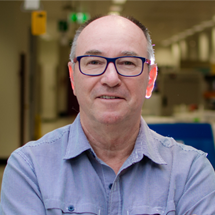 | Andreas Ludwig LOPATA Prof, Dr.; Personal Chair in Biochemistry Australian Institute of Tropical Health & Medicine Tropical Futures Institute James Cook University-Singapore |
Prof. Andreas L. Lopata is a molecular immunologist and leads the Molecular Allergy Research Laboratory in Tropical Futures Institute at James Cook University-Singapore. His research team uses cutting-edge molecular approaches in characterizing the interactions of immunogenic proteins from different food sources with the human immune system. Prof. Lopata is working with BII scientists on the molecular and immunological cross-reactivity of allergens and food safety implications of alternative food proteins.
CHEN Jinmiao
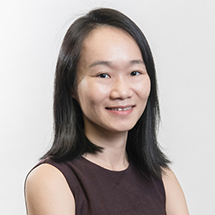 | CHEN Jinmiao Principal Investigator Singapore Immunology Network (SIgN) A*STAR Singapore |
Dr Jinmiao Chen is a Principal Investigator at Singapore Immunology Network (SIgN), A * STAR, Singapore, running a lab that spans both wet lab experiments and dry lab analyses. Her research interest is single-cell and spatial omics integrated with AI for precision immunology. Her dry lab specializes in AI algorithm and omics database development. She was identified as a Highly Cited Researcher in 2020, 2021, and 2022. She collaborates with BII on spatial omics analysis and biological data integration.
SOBOTA Radoslaw
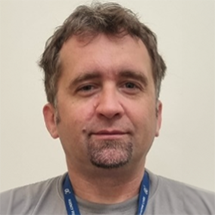 | SOBOTA Radoslaw Principal Investigator Functional Proteomics Laboratory, Institute of Molecular and Cell Biology, A*STAR Singapore |
Principal Investigator IMCB, A*STAR, My long-term research interest is focused on the integration of the cell biology, immunology with quantitative mass spectrometry-based proteomics. It includes Multi-Omics approaches in precision medicine for personalized therapies, antigen identification pipelines development, body fluid biomarker discovery, clinical proteomics, mass spectrometry based diagnostics approaches, novel drug target deconvolution and chemical proteomics for patient- tailored therapies.
TING Daniel
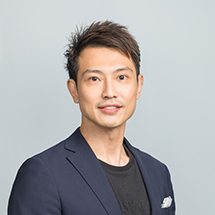 | TING Daniel Associate Professor, Duke-NUS Medical School Senior Consultant Vitreo-Retinal Surgeon and Chief Data and Digital Officer, Singapore National Eye Center Head of AI and Digital Innovation, Singapore Eye Research Institute (SERI) Director of Singapore Health Service AI Office Innovation Mentor at Byers Eye Institute, Stanford University |
Dr Daniel Ting is the Associate Professor with Duke-NUS Medical School, senior consultant vitreo-retinal surgeon and Chief Data and Digital Officer of Singapore National Eye Center, Head of AI and Digital Innovation in the Singapore Eye Research Institute (SERI), Director of Singapore Health Service AI Office, and the innovation mentor at Byers Eye Institute, Stanford University. He was also the 2017/2018 USASEAN Fulbright Scholar visiting Johns Hopkins University to exchange expertise in AI and big data for medicine. To date, he has published >200 peer reviewed publications in high-impact journals, such as JAMA, NEJM, Lancet, Nature Medicine in areas related to machine learning, deep learning, privacy preserving technology such as blockchain technology, federated machine learning and generative adversarial network, satellite technology (4G and 5G), conversational AI chatbot using natural language processing and cybersecurity (e.g., adversarial attack) in health. He is the EXCO of American Academy of Ophthalmology AI committee, STARD-AI, QUADAS-AI and DECIDE-AI, International Agency for Prevention of Blindness (IAPB) technology taskforce. In 2021 and 2022, he was also ranked 1st for deep learning, and top 10 for AI and machine learning in the world across all domains (>55K researchers) for the past 10 years (2010-2021) by the ExpertScape.
ZHANG Yang
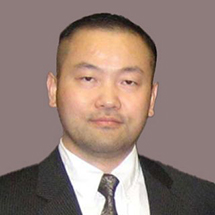 | ZHANG Yang Professor Department Of Computer Science, School of Computing Cancer Science Institute of Singapore Department of Biochemistry, Yong Loo Lin School of Medicine National University of Singapore |
Dr. Yang Zhang is a Professor in the Department of Computer Science, the School of Computing, National University of Singapore (NUS). He also serves as a Professor in the Cancer Science Institute of Singapore, and the Department of Biochemistry at the Yong Loo Lin School of Medicine, NUS. Prior to joining NUS, Dr. Zhang worked as a Professor in the Department of Computational Medicine & Bioinformatics, the Department of Biological Chemistry, and the Department of Macromolecular Science & Engineering, University of Michigan. The research interests of the Zhang Lab are in artificial intelligence and deep neural network learning, protein folding and structure prediction, and protein design and engineering. The I-TASSER algorithm (https://zhanggroup.org/I-TASSER/) developed in his laboratory was ranked as the No. 1 most accurate method for automated protein structure prediction in the community-wide CASP experiments nine times in a row since 2006. Among the honors that Dr. Zhang received include the Alfred P Sloan Award, the ASBMB DeLano Award, the US National Science Foundation Career Award, and the University of Michigan Basic Science Research Award. He was selected as the Thomson Reuters/Clarivate Analytics Highly Cited Researcher for six times since 2015.
WEE Lawrence
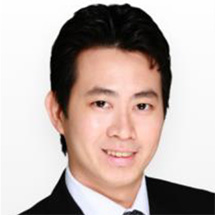 | WEE Lawrence Director Business and Ecosystems BizTech Group Infocomm Media Development Authority (IMDA), Singapore |
Dr. Lawrence Wee is currently Director of the Business and Ecosystems division at IMDA. His team is responsible for driving strategic collaborations to catalyze the exploitation and adoption of AI and emerging technologies for enterprises.
He started his career in public sector research and development when he founded the Healthcare and Biomedical Analytics Laboratory at the Institute of Infocomm Research (I2R), which focused on building deep capabilities in machine learning for biomedicine and healthcare. After the stint at I2R, he moved on to Zuellig Pharma where he took on the role of Chief Data Scientist and led the development of institutional data science capabilities across APAC region. Following that, he joined Allianz Asia-Pacific, where he was responsible for building the regional APAC healthcare data science capabilities across life and health insurance business units. Thereafter, he returned to public service at the Ministry of Health where he had the opportunity to drive strategy and capability development in AI and emerging technologies for the public health sector.
He is an Associate Faculty at the Singapore University of Social Sciences, and was previously the President of the Association for Medical and Bio-informatics Singapore (AMBIS), and vice-chair of the Chinese-American Pharmaceutical Society (CABS) Singapore chapter.
He received his Ph.D. in Computational Biology from the National University of Singapore.
LIU DIANBO
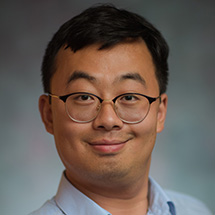 | LIU Dianbo Assistant Professor Department of Biomedical Informatics Yong Loo Lin School of Medicine National University of Singapore |
Dr. Dianbo Liu is a leader of the Cognitive AI for Science team (CogAI4SCI.com) and
Assistant Professor at the National University of Singapore. Before starting CogAI4Sci
team, Dianbo Liu was a group leader at the Broad Institute of MIT and Harvard. Prior
to the Broad Institute, Dianbo worked as a postdoctoral researcher with Prof. Yoshua
Bengio (a Turing Award winner) and led the Humanitarian AI team at the Mila-Quebec
AI Institute. This followed his fellowship training and studies in medical informatics at
Harvard University. Dianbo earned his PhD from the University of Dundee, Scotland, under
the supervision of Prof. Timothea Newman. During his doctoral studies, he received
the Vest Scholarship from the Massachusetts Institute of Technology (MIT) and was a
special graduate student at the MIT Computer Science and Artificial Intelligence Lab.
Dianbo also co-founded two start-ups, “GeneTank” and “SecureAILabs,” to advance AI
applications in biomedical sciences during his training.
BII Alumni
Cheng Li
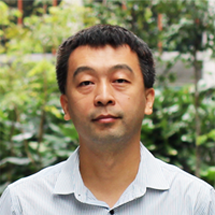 | CHENG Li Professor Department of Electrical and Computer Engineering, University of Alberta Canada |
Dr. Li Cheng research focus is on computer vision and biomedical image analysis. He has been fortunate to collaborate with BII colleagues over the years, including the recent collaborative project with Dr. Hao Fan on AI-guided protein-ligand interaction prediction.
Tanavde Vivek
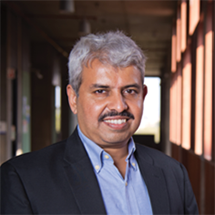 | TANAVDE Vivek Associate Dean, Undergraduate College Associate Professor Biological and Life Sciences School of Arts and Sciences Ahmedabad University, India |
Dr. Vivek Tanavde’s group is focused on developing liquid biopsies for oral cancer screening and prognosis. We are currently assessing the utility of salivary exosomal miRNAs for predicting tumour aggressiveness and development of chemoresistance in Oral Squamous Cell Carcinoma. The group is particularly interested in unravelling the mechanism of action of candidate miRNAs like miR1307 in the development of chemoresistance. In addition, they are also assessing the utility of cell free DNA as biomolecules for liquid biopsies. The group also tries to understand the link between miRNA expression, cellular signalling and cell differentiation. They have used these approaches successfully in the past for studying differentiation of stem cells like mesenchymal stromal cells and embryonic stem cells as well as other systems like zebrafish, wound healing etc.
Grüber Gerhard
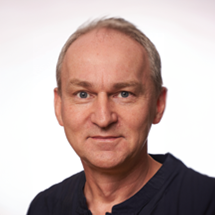 | GRÜBER Gerhard Professor, Dr. School of Biological Sciences, Nanyang Technological University, Singapore |
Prof. Dr. Gerhard Grüber’s research translates understanding of key enzymes of drug resistant microorganisms into identification of novel inhibitor targets for the design of new antimycobacterial lead compounds. He successfully collaborated with the BII, A*STAR members Dr. Peter J. Bond, and Dr. Alexander Krah on multiscale simulation and modeling of compound-bound mycobacterial F1FO ATP synthase.
MALIK Ashar
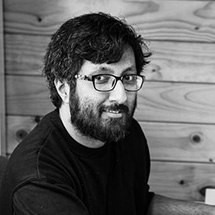 | MALIK Ashar Senior Postdoc Baker Heart and Diabetes Institute Honorary Postdoc University of Queensland |
Dr. Ashar Malik is a senior postdoc in the clinical informatics lab at the Baker Heart and Diabetes Institute in Melbourne and holds an honorary postdoc position at the University of Queensland. Formerly at BII, A*STAR, Ashar worked on precision medicine and quantum computing. Currently, Ashar continues research in these areas, along with molecular evolution for inferring deep phylogenies. His work has led to novel findings in the area of structure-based molecular evolution, which he is currently integrating with large language models to advance the state of precision medicine.
R. N. V. Krishna Deepak
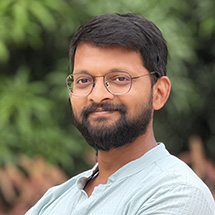 | R. N. V. Krishna Deepak Assistant Professor (Biology Group) School of Arts & Sciences, Azim Premji University, Bengaluru, Karnataka, India |
Dr. R. N. V. Krishna Deepak is an Assistant Professor in the Biology group, School of Arts & Sciences at the Azim Premji University, Bengaluru, Karnataka, India. He is a Computational Structural Biologist with interests in development and application of integrative structural modelling and multiscale simulation methods. At present, his group is interested in studying snake venom toxins using computational approaches including molecular modeling, molecular dynamics (MD) simulations and machine learning methods to establish the structural basis of snake venom toxicity to aid in next-generation anti-venom development. Before joining the University, he worked as a Senior Scientist at the Bioinformatics Institute (BII), Agency for Science, Technology and Research (A*STAR), Singapore.
A*STAR celebrates International Women's Day

From groundbreaking discoveries to cutting-edge research, our researchers are empowering the next generation of female science, technology, engineering and mathematics (STEM) leaders.
Get inspired by our #WomeninSTEM